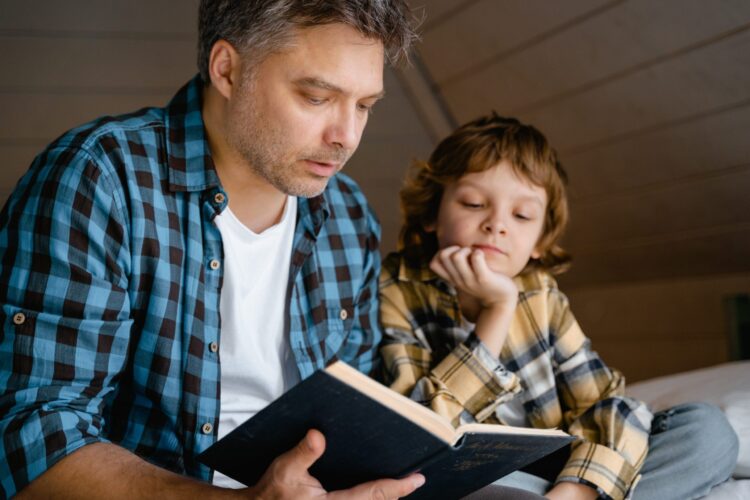When you are struggling with drugs or alcohol, you are not the only person who is affected by your situation.
The list of those who might be impacted by your substance use disorder is potentially long, but in this blog entry, we want to focus on a specific kind of person: the children in your life.
Whether you have children of your own or have a close relationship with other young people in your family or beyond, your substance use disorder could cause those children confusion, sadness, or even fear. The entire situation can be traumatic for children. And it can be extremely difficult to figure out just how to talk to children about what is going on.
Fortunately, there are quite a number of books that have been written with this very difficulty in mind. You or another adult who understands the situation can use these books—and others like them—to help children understand what is going on. Among the key messages these books share with children is that an adult’s substance use disorder is never the child’s fault.
Let’s take a look at some of the books you might choose from to help explain the complexities of what you are going through in a simple way kids can understand. These books vary in age—some date back quite aways—so you may want to check your local library, area used bookstores, and/or online to find copies.
Options for the Teenagers in Your Life
Alateen: Hope for Children of Alcoholics
Alateen is a program of Al-Anon, an organization that helps those who love someone who struggles with drugs or alcohol. This Alateen book features true stories from teens who have a parent who has developed a substance use disorder. The book also offers straightforward answers to a number of common questions teens might have.
Different Like Me: A Book for Teens Who Worry About Their Parent’s Use of Alcohol/Drugs
Evelyn Leite and Pamela Espeland’s book aims to help young people separate fact from fiction when it comes to drugs and alcohol. The book features clear explanations of substance use disorders and the impacts they can have on a person’s life. The authors also offer advice to teens who might find themselves having to deal with difficult situations caused by a parent’s substance use.
Options for the Younger Children in Your Life
Fresh Fables: The Dragon Who Lives at Our House
In Elaine Mitchell Palmore’s story, we meet Al, who happens to be a dragon (and a stand-in for alcohol). Early on in the story, Al is welcomed to a variety of family functions—and the dad character really enjoys Al’s company. But before too long, Al threatens to completely replace the rest of the family. But Dad gets the help he needs to end his relationship with Al so that the family can be restored. This “fresh fable” can help young people understand how things can go wrong—and how they might be made right again.
I Can Talk About What Hurts: A Book for Kids in Homes Where There’s Chemical Dependency
Kids often struggle to express their thoughts and emotions—especially when things are difficult at home. Janet Sinberg and Dennis Daley’s book offers ideas and encouragement to help young people feel more comfortable talking about their feelings, their fears, and their questions. When a family member is struggling with a substance use disorder, children might be struggling to figure out how to talk about how they are feeling. I Can Talk About What Hurts can help.
My Dad Loves Me, My Dad Has a Disease: A Child’s View of Living with Addiction
Claudia Black does the important work of reminding children that a person can find themselves in a bad situation—may even do bad things—without being a bad person. Black identifies a substance use disorder as a disease, an accurate description and a concept young children can understand. The book also gives children permission to feel frustrated, lonely, and fearful—while also providing ideas for working through those feelings.
These Are Just Five Books Among Many
It might take a little effort—and perhaps the help of a trusted friend—to find just the right book or books to help the children in your life understand the realities of a substance use disorder. But the effort is well worth it. Helping a child navigate a confusing and difficult time is not only kind—it may also provide them with the information and inspiration they need to steer clear of drugs or alcohol in the future.
We Can Help You Change Your Own Story
If you are struggling with a substance use disorder, it might seem like your personal story can’t possibly have a happy ending. But treatment can help you change the storyline.
At Bel Aire Recovery Center in Kansas, we will help you regain and maintain your sobriety. We think that is the best kind of plot twist—for you, your family, and the children you love.

